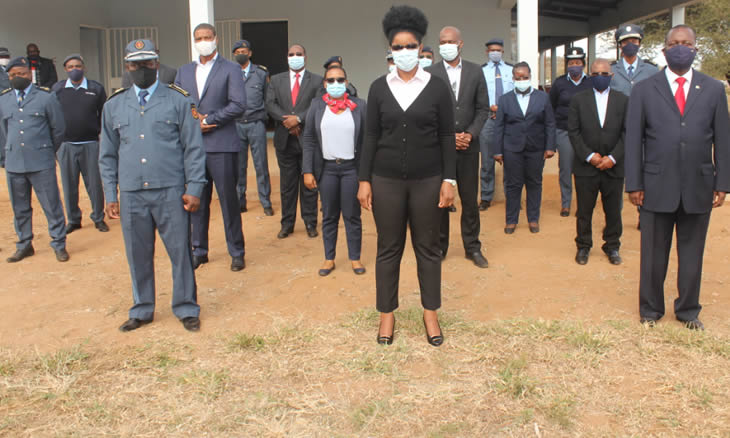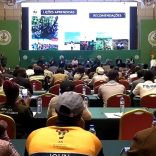Mozambique: National directors appointed at Ministry of Agriculture, Environment and Fisheries
Tax forgiveness: 2.74 billion meticais will not be going into state coffers – report

Photo: O País
The fiscal impact resulting from the waiver of payments on account and the postponement of the Special Payment on Account of companies affected by the pandemic of COVID-19, will cost the state around 2.74 billion meticais in advances from small businesses.
The Mozambican state needs the money. Companies have “accounts in the red”, and cannot pay taxes. The Covid-19 pandemic has overtaken everyone and everything.
Such is the picture painted a few days ago by the president of the Mozambican Tax Authority (AT), Amélia Muendane, at the start of the General Directorate of Customs annual retreat.
“This scenario will require an additional effort from us. We have to reinvent ourselves and find solutions to cover the 112.8 billion deficit that remains to be collected for the state coffers, in order to relieve pressure on spending and ensure the redistribution of income and stimulate the national economy,” the AT president said.
For this year, the tax authorities set a target of collecting 235.59 billion meticais in taxes. Up to the first half of 2020, approximately 115.97 billion meticais was collected, which corresponds to an execution of 102.83% of the target for the period and 49.23% of the annual target.
Muendane said that “good performance” in income tax contributed to this growth, with regard to the increase in withholding taxes of some companies, particularly companies operating in the financial sector.
There were also contributions from new investment projects such as the oil company Exxon Mobil. “However, the engagement of employees was fundamental to achieving such positive results,” Muendane underlined.
Tax and Customs reforms
The proposed reform in customs procedures will require greater capacity to manage processes. The Tax Authority of Mozambique is in the process of strengthening its staff, incorporating at least 2,000 new employees in the next two years and expanding the standard staff to 10,000 employees in the next 10 years.
The fight against smuggling in Mozambique will require a paradigm shift, and ensure territorial management geared to the disposal of resources and with a view to ensuring the success of this aim.
At least 65% of AT employees are expected to be moved out of the centre of the capital to central and northern regions, through whose borders Mozambique illegally loses national wealth in wood, gold, ivory, precious stones and agricultural products.
By Edson Arante













Leave a Reply
Be the First to Comment!
You must be logged in to post a comment.
You must be logged in to post a comment.